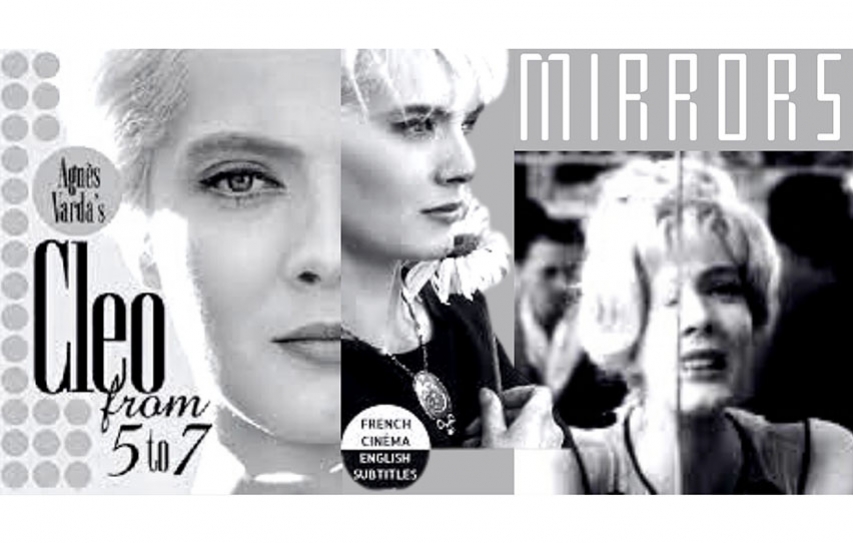
Mirror, Mirror on the Wall
by Vandana Kumar September 16 2021, 12:00 am Estimated Reading Time: 10 mins, 51 secsIn Agnès Varda’s 1962 film Cléo from 5 to 7 (French title Cléo de 5 à 7), a vain pop singer Cléo (Corinne Marchand) has two hours to kill in wait for her biopsy result, writes Vandana Kumar
The movie has her wandering through the ‘City of lights’ as well-meaning friends can do little to alleviate her excruciating stress. She finally finds comfort talking with a soldier in a park. On leave from the Algerian War, his troubles and attitude make hers feel rather diminutive. By the end of those two hours she has made peace with her troubled waters and is ready to take on the results.
The film was nominated for the Palme d’Or at the Cannes Film Festival. In 2019, the BBC polled 368 film experts from 84 countries to name the 100 greatest films directed by women. The film was voted the second greatest film directed by a woman. Agnès Varda is often considered the Godmother of the ‘French New Wave’. Perhaps one should not see it as injustice that she is not usually mentioned in the club of men there, like Godard, Truffaut, Resnais, Chabrol, Rivette, Rohmer and her husband Jacques Demy, for she is simply way too much in a league of her own.
In relentless pursuit of what could only be called her individual style, this auteur was the poet who was considered far more overtly left in her cinema than others like Rohmer and Chabrol of the ‘French New Wave’. By sheer gender she became an icon for feminists in the European film industries. Women were generally the center of Varda’s films and documentaries and this was a stark departure from the norm till around the 1970s. Released in 1962 the film remains as relevant today because at its core is a deep philosophical and social commentary. It deals with the idea of the realization of our crushing mortality and related themes like hopelessness and a larger canvas of existentialism.
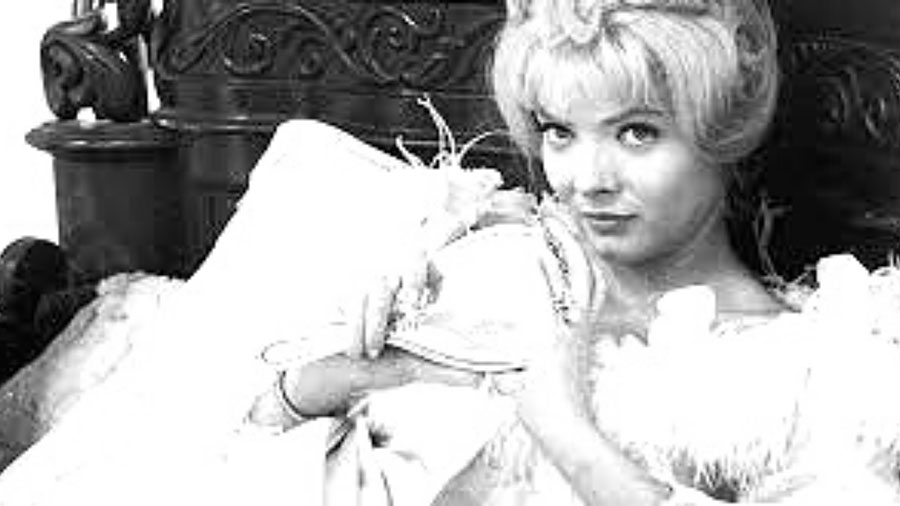
While the underpinning is of course the uncertainty of life and dealing with the idea of terminal illness, which is universal and not gender specific, the film is also about the city of Paris as much as it is about the woman’s gaze and her inward journey of liberation. It is about the city looking at Cléo and by city, I mean the entire canvas - from the storekeepers to the cafes, from the taxi drivers to the monuments. It is also about Cléo looking at the city from the eyes of someone dreading life altering bad news. Here the journey of realization takes on a different hue as it is not just from the eyes of a woman but a vain and self-obsessed one at that.
Cléo’s relationship with beauty is central to the journey. It starts with us discovering her constant need for reassurance and continues for a better part of the two hours. Varda wants us to feel what every woman might in the marketplace, where her beauty is placed at a premium. A man seeks a beautiful woman and that an ugly woman has really no future anywhere. Cléo seems to think these things, though they are not spoken about openly. Varda is telling us so much about her insecurities in the male dominated world. The fact that Cléo is a pop star makes it all the more imperative for her to be dolled up and look gorgeous.
Very early in the film, just after her session with the tarot reader, she gazes into a mirror and states, “Ugliness is a kind of death. As long as I am beautiful, I’m more alive than the others”. To her, even more than the idea of cancer causing death, is the idea of what illness could possibly do to her beauty. As long as she is beautiful things will be beautiful. So her value is inextricably linked with her looks and mortality with beauty. A man would perhaps prefer to be with a sick woman if she retains her looks and youth. But a youth icon without looks is no icon at all.
There are other little things that establish this very early - wearing a wig, looking at her reflection constantly and putting on make-up. She says at another time “I am glad my cancer is in my stomach”. Back briefly in her apartment, Cléo delicately mentions to her lover that she is unwell. He dismisses it by saying “your beauty is your health.” Innocuously said but it is evident that health is as one sees it in the visage. The internal congestions, growths and ruptures are immaterial to the outsider if the external is pleasant. This further depresses her as does the fact that all her good looks, talent and fame are of no use to allay her fears. No one pays any attention to her ailments that are not showing on the surface.
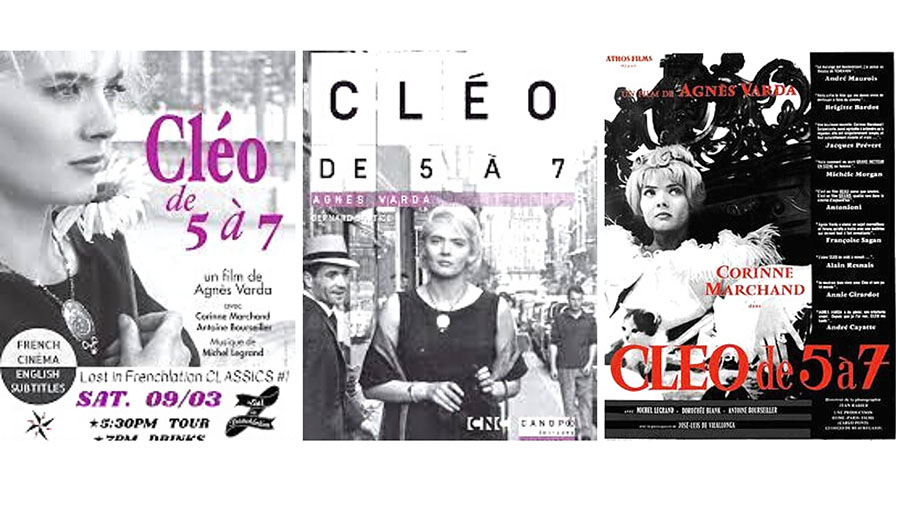
A significant scene is when she and her assistant take a taxi ride with a female cab driver. The contrast is very evident. Cléo is unimpressed by this lady’s self-assurance and sense of liberation, as she looks rather unattractive to her physically. Femininity and appearance are not on her priority list, which is unpalatable for Cléo. The driver does mention that there are a few unfortunate encounters daily but she is equipped to handle them. The taxi driver, on the contrary, impresses Cléo’s assistant. Despite the job’s many limitations, it’s a job that she has chosen and it empowers her.
The two hours of wait are a constant denuding of everything Cléo believes in at the point when the movie starts. Slowly many notions get eroded. There is a scene when she visits a friend who is modeling nude for an artist. Cléo is very skeptical and raises doubts about her profession. She states that it feels “indiscreet” and that she would feel exposed in a similar situation. Her friend is quick to dismiss her and says “my body makes me happy, not proud. They’re looking at more than just me - a shape, an idea”. Cléo has been brought up thinking her body is an object and one that is therefore, up for scrutiny and judgment, as anything in a market driven society is. Her friend puts it in such a different perspective - nudity and the transcendental. The body is not something to be proud or shameful of. It merely exists and it represents way beyond the literal.
Cléo’s lack of interest on war is very evident during the taxi ride when references to the Algerian war are made on the radio. Varda reminds us of the never to be forgotten political backdrop. The stark gender divide through Cléo’s eyes is evident. She has to focus on beauty and is oblivious of world affairs and it is a man’s job to discuss politics.
Cléo being a product of mass culture and a society thriving on consumerism seems hollow and empty. The 1950s was about rebuilding the nation and post war reconstruction and consumerism was taking off in new ways. The first gaze of the city is a dazzling store selling everything from health to hats and resting tired feet to spend some more in the new cafes that have sprung up. She stops in a hat shop and indulgently says, “Trying things on, intoxicates me.” It is also an exploitative market. Despite being a rising pop star she feels helpless due to her inability to read music and is dependent on her songwriters who dismiss her when she wants her talent acknowledged. “Soon,” she wails, “I’ll just be a puppet.” She feels exploited and yet feels this is her best bet at fame and she does not want to ruffle feathers.
In the 1970’s there were some left feminist critics who were outright dismissive of Varda as they perceived her brand of cinema to be being merely by women and not necessarily politically about women and their struggles for emancipation. Critic Claire Johnston laid out a feminist politics of the cinema that pertinently excluded one of the greatest women directors. “There is no doubt that Varda’s work is reactionary; in her rejection of culture and her placement of a woman outside history, her films mark a retrograde step in women’s cinema.”
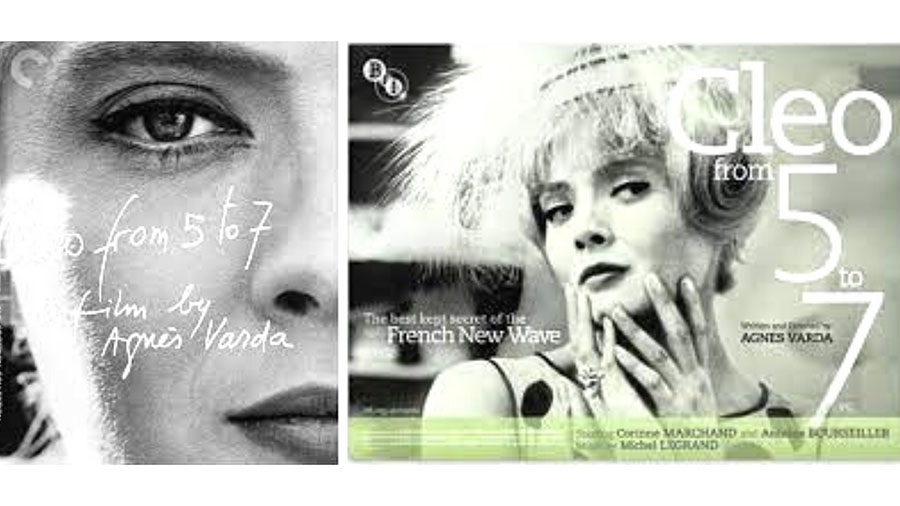
Varda has driven home stronger points than many directors even in today’s climate-and not just about patriarchy. In Cléo itself there are references to the Algerian war and French imperialism that are woven into these two hours of Cléo’s journey, making a statement without anybody realizing it. Cléo was not a documentary, or, an in your face film about woman-power and women’s lib slogans. The character ‘Cléo’ was not supposed to be a feminist icon, but a woman caught with all of her personal insecurities in a patriarchal society of which she was a by-product. That post war consumerism enslaved women rather than liberated, is the point Varda makes. It was about Cléo seeing different women playing varied roles in the film, through this prism. It was about her vulnerabilities that such a society brings out and it was in the end, about her transformation and realization.
The feminist film theorist Hilary Neroni mentions in her book ‘Feminist Film Theory and Cléo de 5 to 7’, that ‘Varda creates one of the greatest feminist masterpieces in the history of cinema by enacting the contradictions of femininity and forcing the viewer to experience these contradictions without any means of escape… Cléo from 5 to 7 enables us to see that feminism is not just a project of female emancipation but an emancipatory project for all of society.’ Varda herself talked about the various concessions she had to make. “And if I could make Cléo about femininity and fear of death, it is because the girl was beautiful - if you told the same story about a 55-year-old lonely woman, who would care if she were dying of cancer and who would come to see the film”.
5 to 7 are the hours when lovers meet in France. For Cléo these two hours are so removed from the idea of a conventional rendezvous. The narrative time and viewing time merge as Varda takes us through Cléo’s turmoil in a multi-layered cinematic ride across Paris. Her two hours pay a rich tribute to the French New Wave directors. Both Jean–Luc Godard and Anna Karina appear in cameos in a brief silent film. There is street art and cafes and protesting students. There is the taxi radio talking of the Algerian war and Edith Piaf’s surgery and progress (just a year before she passed away). There is also a poster for Luis Buñuel’s ‘Un Chien Andalou’ on a wall. There are lovers overheard breaking up in a café. There is normal everydayness of this city steeped in culture even as Cléo goes through two life-changing hours. The street art will live on. The cafes will have more customers the next day - some will marry and some will divorce. Nothing stops for death - not a city, nor its people. Cléo’s gaze shifts from herself to the world, and as she learns to care less what the world thinks of her, she is liberated from fear.
In Cléo’s realisation of the fact that death is the only uncertainty and that war brings so much destruction, her own woes pale and there is ultimate acceptance of whatever life has to offer. She is at peace. Her freedom from the obsession with superficial things seems to signify one for all mankind, not just her gender. From someone who is an object of gaze she becomes the observer in her understanding of life. It is a universal truth that one should not need external validation from mirrors and one is as beautiful and strong as one feels. In an uncertain and increasingly competitive world where egos are fragile and self-esteem low, Cléo’s journey through her two hours of self-discovery is more relevant than ever.




-173X130.jpg)
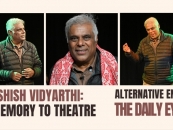
-173X130.jpg)
-173X130.jpg)
-173X130.jpg)
-173X130.jpg)
-173X130.jpg)
-173X130.jpg)